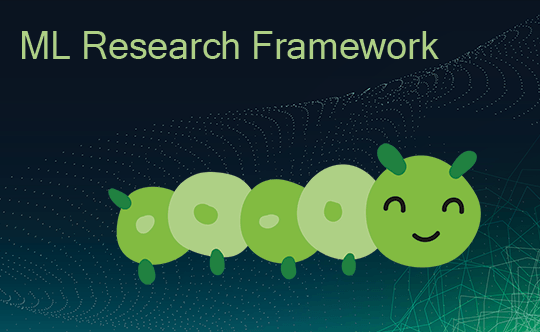Software Development
Machine Learning Research Framework
01. Brief
Developed a highly scalable 🚀 and easily deployable 🔁 Python 🐍 framework for machine learning 🤖 research, abstracting various tools, including Scikit-learn, TensorFlow, Optuna, Imbalanced-learn, XGBoost, Seaborn, Matplotlib, and others. Includes ✅ composable core ML components for preprocessing, (un)supervised learning, deep learning, and recommendation systems, plus robust error handling capabilities in production.
02. Skills
Software Development, Python, Design Pattern, Software Design, Functional Programming, Machine Learning

03. Achievements
Scalable ML framework
designed with composable software to streamline the research process and enable easy scaling of machine learning pipelines.
Composable core ML components
includes support for essential machine learning components such as train-test split, imputation, encoding, upsampling, resampling, cross-validation, supervised learning, unsupervised learning, deep learning, neural networks, recommendation systems, and natural language processing.
Seamless pipeline deployment
facilitated deployment of replicated machine learning pipelines from research to production.
04. Problems
In typical machine learning processes, developers may need to use several different libraries and tools, such as Scikit-learn, Imbalanced-learn, XGBoost, and Tensorflow, to complete various tasks. This can make the development process time-consuming and complex.
05. Actions
• Implemented a composable software design to streamline the research process and enable easy scaling of machine learning pipelines.
• Facilitated deployment of replicated machine learning pipelines from research toward production.
• Delivered outstanding results with a user-friendly and efficient framework.
• Included a wide range of components for core machine-learning tasks, including train-test split, imputation, encoding, upsampling, resampling, and cross-validation, as well as components for supervised learning, unsupervised learning, deep learning, neural networks,recommendation systems, and natural language processing.
• Composed the framework with specially crafted components to handle potential production errors, such as data with incorrect types or schema, without causing explicit errors and ensuring uninterrupted operation.